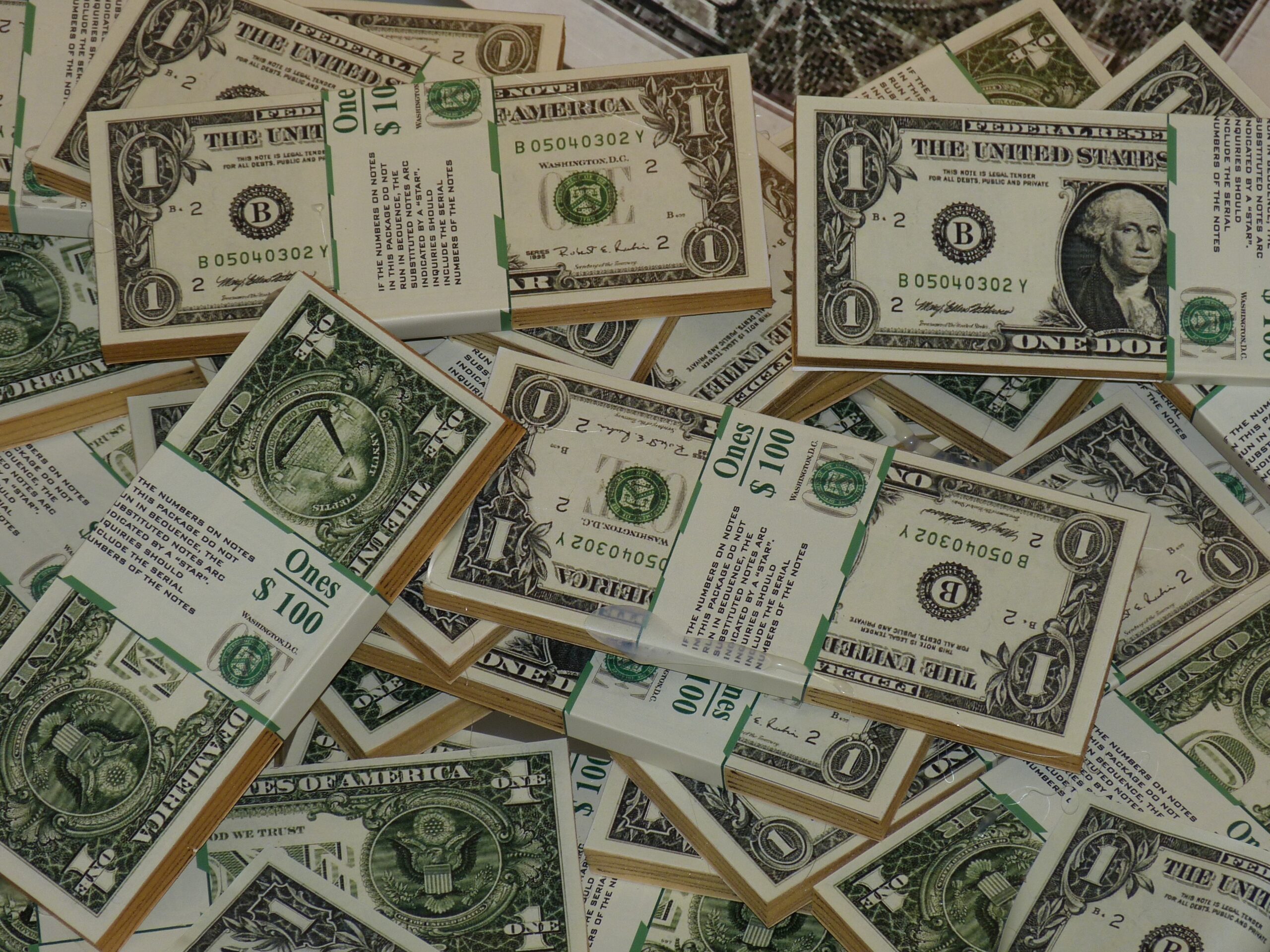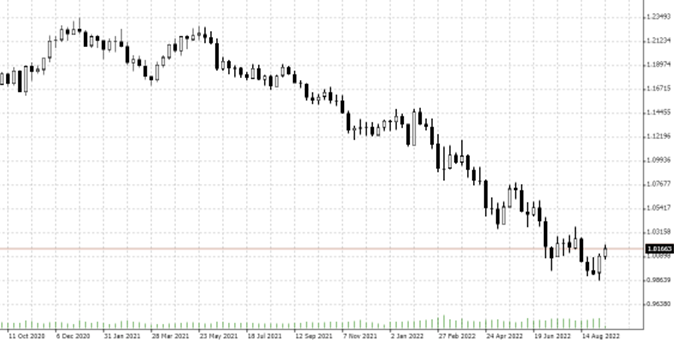

13.09.2022 –Topsy-turvy world: The dollar is stronger than it has been for a long time. Because of the Federal Reserve’s interest rate turnaround. And now, of all times, some forecasters are calling for a short trade. Because of the Federal Reserve’s interest rate turnaround. We shed light on the background to the surprising turnaround.
Corona crisis, Ukraine war, higher interest rates in the U.S. than in Euroland: the greenback has served as a safe haven for many investors for quite some time. Investors are fleeing the emerging markets in particular. And since the energy crisis in Europe is likely to hurt domestic industry, we have another argument pro dollar and contra euro. Here EURUSD in a weekly chart.

Quelle: Bernstein Bank GmbH
But wait – suddenly there is a new assessment of the situation by some analysts. Surprise: Dollar short could become enormously lucrative. Because the political costs of raising interest rates are too high. So those who are betting on a further slide of various currencies against the dollar could be wrong.
Beware of bear traps
On that note, Lawrence ‘Larry’ G. McDonald has just spoken out, he is a best-selling author and founder of ‘The Bear Traps Report’. This is an investment newsletter focusing on the macro perspective. McDonald points out a rarely highlighted fact: Currently, he says, the Fed is secretly, quietly, paying about $250 million to a few banks – on a daily basis.
The reason: For 14 years, financial institutions have been forced to avoid risky investments in the course of risk reduction; this is called deleveraging. Instead, they have increasingly invested in U.S. bonds. And here we have landed on the subject of the dollar short: As interest rates rise, the Fed would have to pay these banks more and more money for coupons. And the Fed would soon incur losses. No wonder with an increase from 25 to 325 basis points in a few months – and who knows where the Fed Fund rate will stop. McDonald called the social cost of tightening rates and redistributing wealth too high.
Trade of 2023
In the same vein is a statement by Michael Hartnett, who has been quoted here several times, that is one of the best analysts on Wall Street. The chief investment strategist at Bank of America recently called out the top trade of 2023: Dollars short and long in emerging market assets, global addresses in the UK, internet stocks in China and in gold miners. But that’s only after the US recession begins – these will signal the peak in the dollar; and also only after the economic trough in China, which will likely be accompanied by a devaluation of the yuan. Specifically, Hartnett’s Top Trade 2023 looks like this: “Our high conviction – U.S. dollar bear basket is locked and loaded – EWZ Brazil, EEM Emerging Markets, FXI – KWEB China, global value names in EMU and gold miners GDX.” Where the abbreviations stand for index funds.
Risk of Overtightening
Indeed, Fed Vice Chair Lael Brainard has just fueled such thinking: “There’s a risk of raising rates too much.” She referred to the “global nature…. risks with overtightening.” We wonder if the experts are right, and if the Fed actually has in mind moving away from tightening so as not to send the economy into recession by twisting off cheap money. If the banks cash out while millions of people go into unemployment, that would be explosive indeed. Things remain exciting – Bernstein Bank is keeping an eye on the situation for you!
The content of this publication is for general information purposes only. In this context, it is neither an individual investment recommendation or advice nor an offer to purchase or sell securities or other financial products. The content in question and all the information contained therein do not in any way replace individual investor- or investment-oriented advice. No reliable forecast or indication for the future is possible with respect to any presentation or information on the present or past performance of the relevant underlying assets. All information and data presented in this publication are based on reliable sources. However, Bernstein Bank does not guarantee that the information and data contained in this publication is up-to-date, correct and complete. Securities traded on the financial markets are subject to price fluctuations. A contract for difference (CFD) is also a financial instrument with leverage effect. Against this backdrop, CFD trading involves a high risk up to the point of total loss and may not be suitable for all investors. Therefore, make sure that you have fully understood all the correlating risks. If necessary, ask for independent advice. CFDs are complex instruments and are associated with the high risk of losing money quickly because of the leverage effect. 68% of retail investor accounts lose money trading CFD with this provider. You should consider whether you understand how CFD work and whether you can afford to take the high risk of losing your money.7
